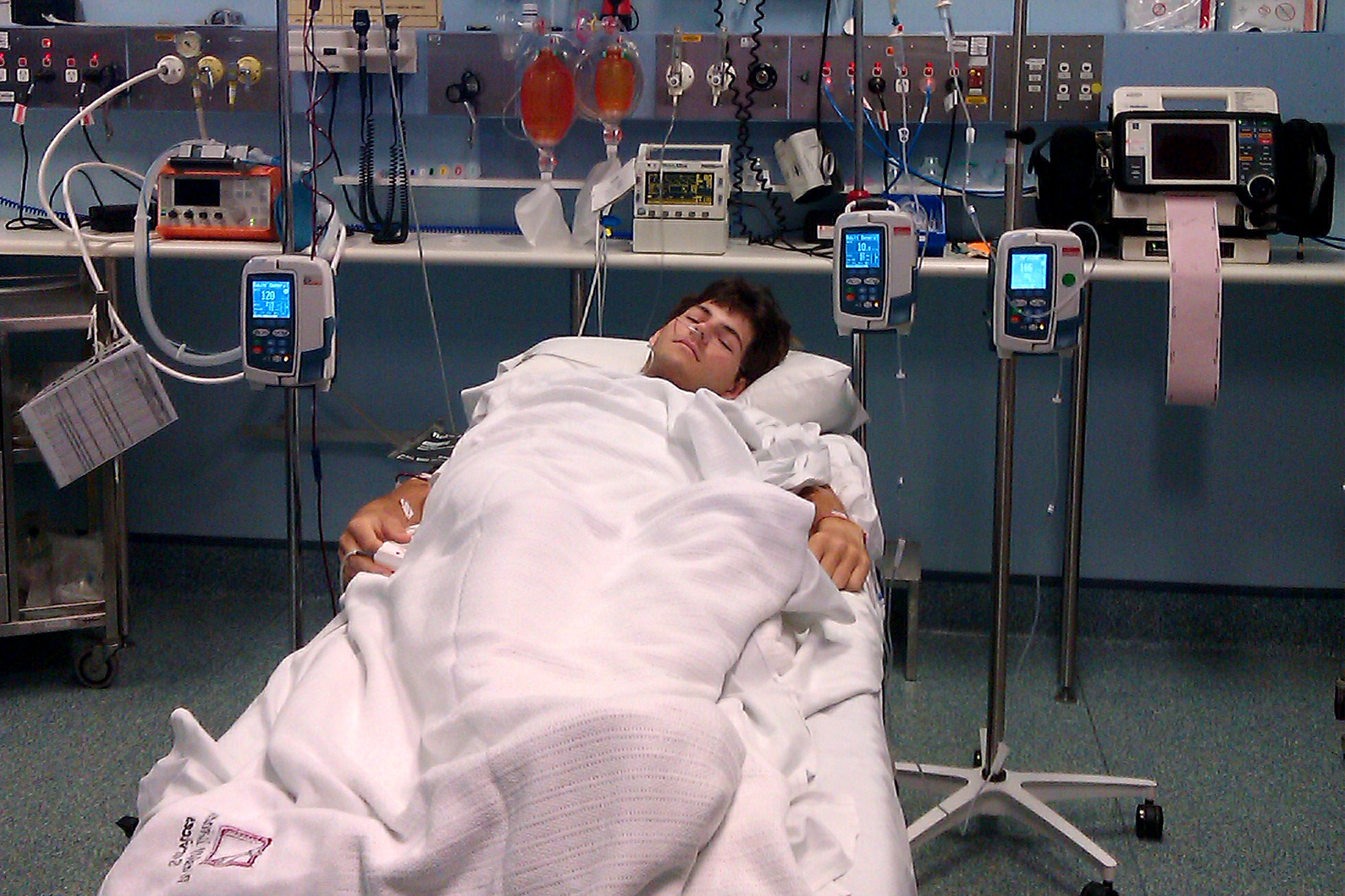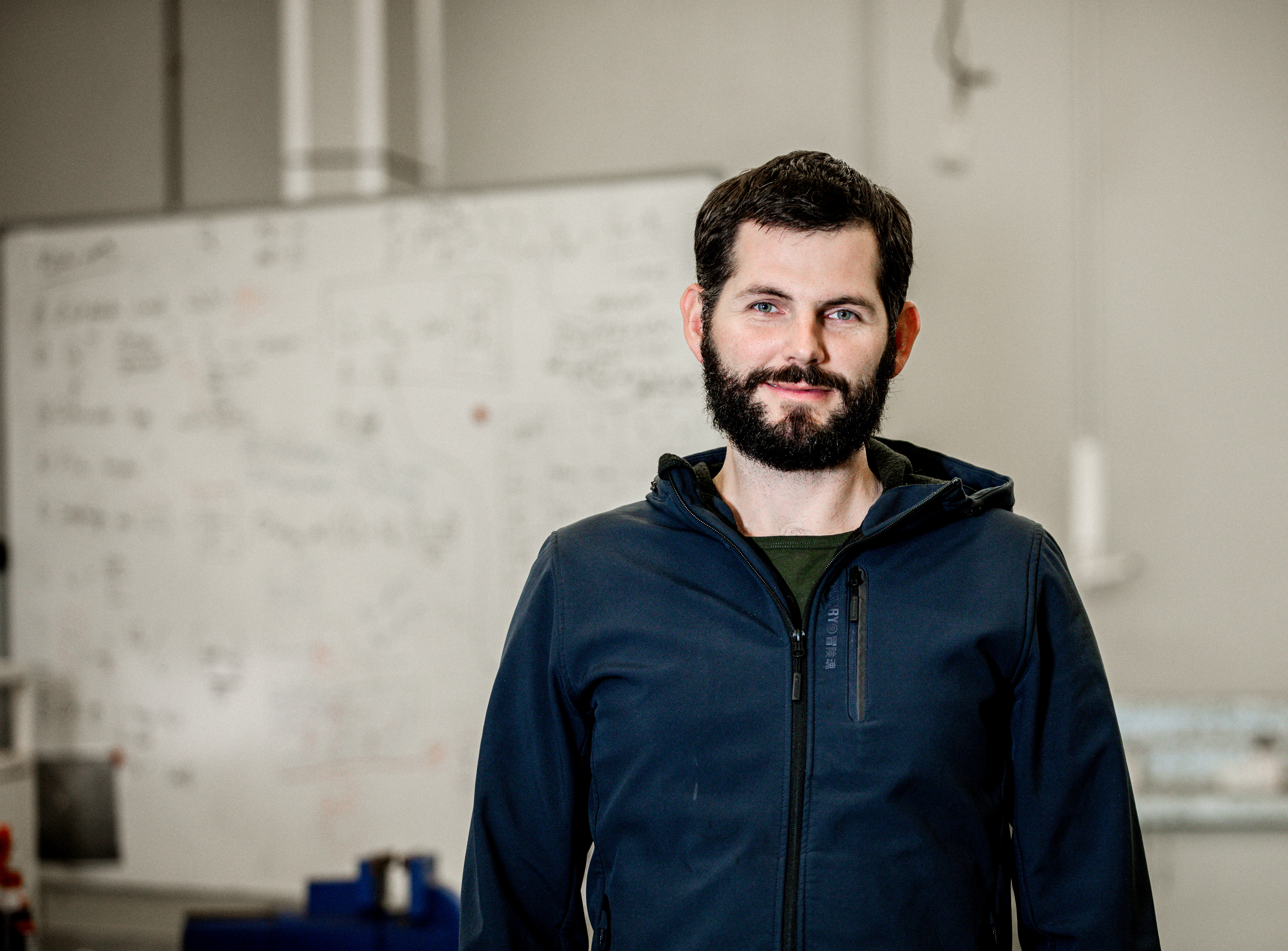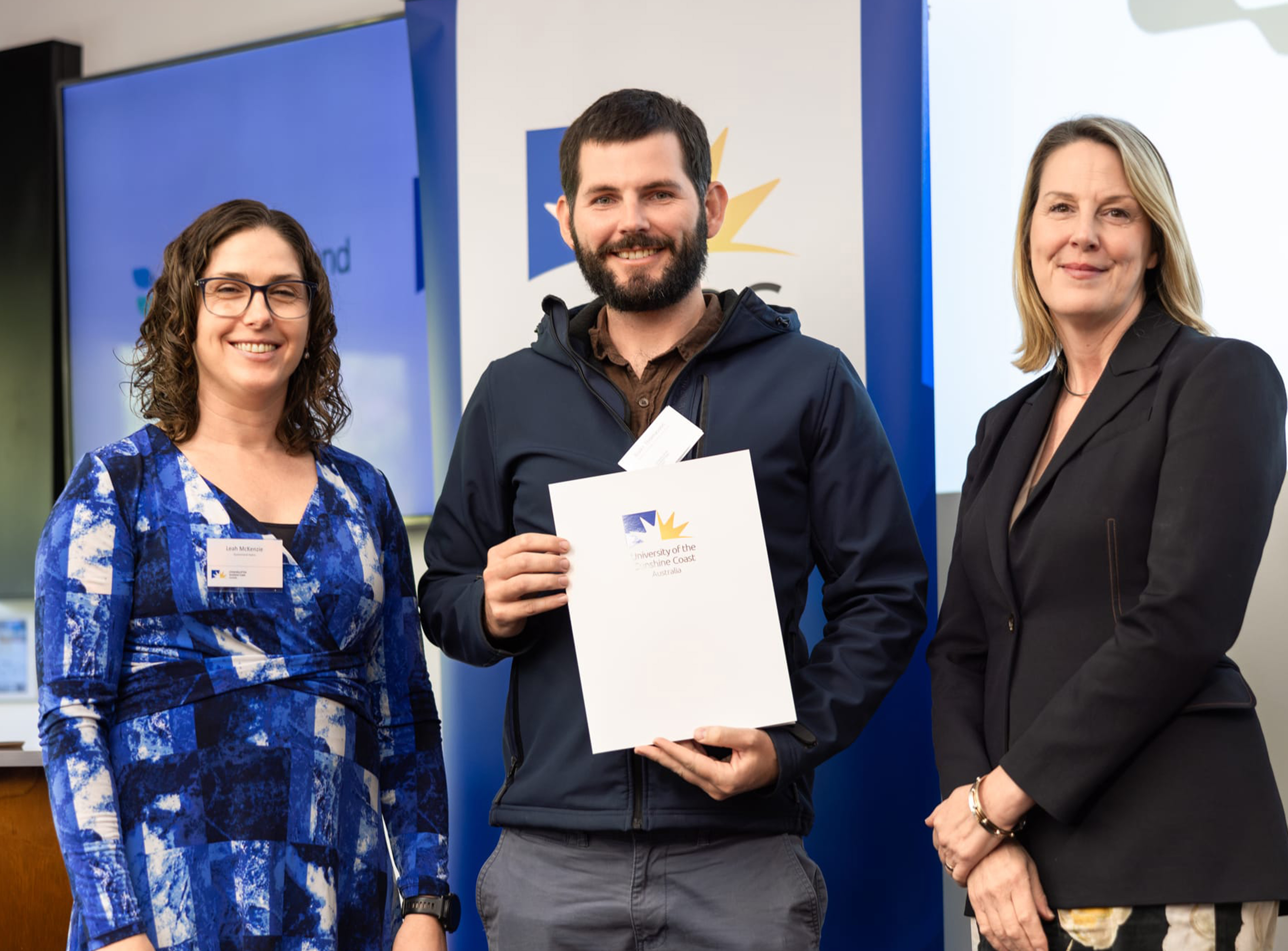Life hasn’t been all smooth sailing for Blake Thomasson. At the age of 15, a debilitating stroke left him unable to walk, talk or remember his active life before then. But today, at 32, Blake is challenging his ‘brain injury’ label, relearning how to learn, and forging forward with a Bachelor of Engineering at the University of the Sunshine Coast (UniSC).
Two years ago, Blake was living in Brisbane, working as a yacht rigger so he could stay connected, in some way, to his beloved sailing industry. But he felt the job "wasn't quite right" for him.
"I was involved with a lot of engineering drawings and thought, ‘maybe I could be the person that makes these drawings.’"
Blake considered taking a drafting course at TAFE, until his partner who lived on the Sunshine Coast said, “Why don't you go to university… and move in with me?"
As a stroke survivor with a brain injury, university had – up to this point – never been a consideration for Blake. But, with the seed planted, Blake began to wonder if perhaps he did have the stamina and mental capacity needed to make it through a university degree... despite everything.
Everything, which Blake knows, can change in an instant.
At the age of 15, Blake was an avid, champion sailor looking ahead to his senior schooling years, dreaming of competing at the Olympics. All of this came to a crashing halt one morning, when just before heading to a sailing regatta, Blake suddenly couldn’t speak, and the right side of his face collapsed.
“Being 15, no one expected me to have a stroke,” Blake says.
“If it had happened just two hours later, I would have been sailing offshore, and it may have been too late to get help.”
Luckily, Blake’s mum – Karee-Ann – has a medical administration background. She knew instantly what was happening and “quickly got onto it,” calling an ambulance which showed up within minutes.
The stroke led to a three-month recovery at Nambour Hospital, followed by six months of intensive rehab at the Royal Brisbane Hospital.
“I had to learn how to walk and talk again, even just the simple task of walking on grass or sand, I couldn’t do it, my brain just wouldn't move my feet... it took a lot of rehab to learn how to step from concrete on to grass."
Blake also lost all memory of his life before the stroke, everything from the age of 15 to when he was a baby is “completely gone.”
"The hardest thing is when people say, ‘don't you remember me?’ or bumping into someone in the street that I went to school with, and they say, ‘remember me from grade eight?’, and I have to explain I had a stroke and a brain injury, then people sort of get it."
After the stroke, Blake only did school part-time at participation level, for the social side of schooling. He was never pushed to get an OP (now an ATAR score) or go down the path of university, because he was “labelled as having a brain injury.”
So, when his girlfriend suggested he apply for university, Blake says he wondered if this was his “second chance of having a go at my education.”
Taking a leap of faith, he applied to study at UniSC, starting with a free, six-month Tertiary Preparation Pathway (TPP) program. He then packed his belongings and moved to the Sunshine Coast, on the very same day he received his acceptance into uni.
“I know I’m limited, I’ve battled fatigue and memory loss, and it's taken more than ten years to overcome those obstacles, so I never considered I could be a uni student… but when the idea came, and with TPP being a free course, I thought, ‘Why not give it a go?’"
"I was advised not to study full time because of my chronic fatigue, but I thought, ‘I'm just going to do it – and if I fail, I fail,’” he says.
Despite self-doubt, Blake thrived at university. He soon enrolled in a Bachelor of Engineering, specialising in civil engineering.
“I had to learn how to learn again – but I surprised myself and got great grades, which encouraged me to pursue my studies in engineering,” he says.
On top of the stroke, Blake also battles Crohn's disease, and at the age of 21 found himself hospitalised with a debilitating mystery illness. He spent the next 18 months in a wheelchair, completely dependent on his parents and unable to even shower himself.
“Doctors didn't know what was wrong with me… their prognosis was to take every day as it comes, enjoy it like it's my last; I got the impression they didn’t think there would be a good outcome.”
Determined to change his trajectory, Blake began to work on his mental health, and gradually he improved. Now two years into his degree, Blake has experienced many highs – and a few lows – in his journey.
"I’ve thought often, ‘I’m a stroke victim, and people with brain injuries shouldn't be at university – it's too fast paced… but then I get my grades at the end of the semester, and I'm like, ‘Yes, I can do this.’ My friends and family are around me, encouraging and supporting my journey."
This year he was awarded a competitive Queensland Hydro Scholarship which supports engineering students at UniSC, for which he says he’s extremely grateful.
“The scholarship gives me a bit more financial freedom stability, and hopefully, it'll lead to opportunities to meet people in the industry and gain experience.”
Volunteering is also a significant part of Blake's life, especially for organisations that support homeless people, like Orange Sky Laundry.
"I get to have a chat with the people who come in to use the service, and some of their stories are just unreal… I think about my story which is nothing compared to the challenges they’ve had in their life."
Blake says he loves sharing his story with the many incredible people he’s met along his unexpected journey, from teen sailor to stroke survivor to engineering student.
“I have battled depression, but the one thing that keeps me mentally strong is, I wouldn't be where I am if I didn't have the stroke… I've had amazing opportunities."
Media enquiries: Please contact the Media Team media@usc.edu.au






